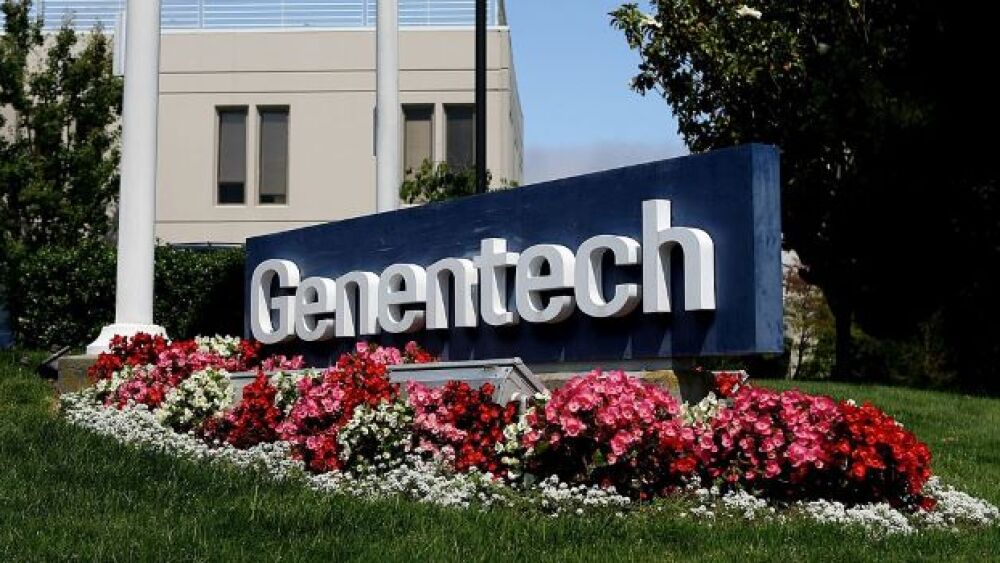A U.S. FDA committee gave the nod to continue using Genentech’s checkpoint inhibitor Tecentriq in combination with chemotherapy to treat adults with mTNBC.
FDA gives green signal to Tecentriq. (Justin Sullivan/Getty Images)
A U.S. Food and Drug Administration (FDA) committee gave the nod to continue using Genentech’s checkpoint inhibitor Tecentriq in combination with chemotherapy to treat adults with unresectable locally advanced or metastatic triple-negative breast cancer (mTNBC) whose tumors express PD-L1.
On Tuesday, the FDA’s Oncologic Drugs Advisory Committee voted 7 to 2 in favor of maintaining accelerated approval of Tecentriq (atezolizumab) for this indication, despite failing to meet its confirmatory goals in a follow-on study after accelerated approval was issued was first granted in 2019 based on positive progression-free survival results from the ImPassion130 study.
The study also showed Tecentriq provided clinically meaningful improvements in overall survival for the patient population, with an increase of 7.5 months in median OS. However, the confirmatory IMpassion131 study failed to meet the primary endpoint of progression-free survival for the initial (first-line) treatment of people with mTNBC in the PD-L1-positive population. While IMpassion131 failed, Genentech noted that the clinically meaningful benefit demonstrated in the IMpassion130 study remains. The company hopes to continue working with the FDA to determine the next steps concerning Tecentriq for mTNBC patients.
Levi Garraway, chief medical officer and head of Global Product Development for Genentech, said people diagnosed with triple-negative breast cancer have few treatment options. The committee’s decision to “recognize the importance of this Tecentriq combination is significant,” he added. Garraway said he was thankful the committee conducted its review in a manner that allowed for open dialogue.
While the advisory committee voted in favor of offering Tecentriq in this indication, the FDA will have the ultimate say-so. Genentech said the regulatory agency has not announced when it will issue a final decision regarding this issue.
The U.S. Food and Drug Administration has been running an industry-wide evaluation of its accelerated approvals, focusing on determining which have not met post-marketing requirements. The FDA’s Oncology Center of Excellence called the advisory meeting to evaluate the accelerated approvals in oncology for drugs whose confirmatory trials failed to confirm clinical benefit, including Tecentriq.
Other drugs the committee is reviewing this week include Merck’s Keytruda and (pembrolizumab) Bristol Myers Squibb’s Opdivo (nivolumab). The committee will continue to meet through Thursday.
The FDA will review Tecentriq’s accelerated approval to treat people with locally advanced or metastatic urothelial carcinoma (mUC, bladder cancer) who are not eligible for cisplatin-containing chemotherapy. Roche previously pulled Tecentriq as a second-line treatment for bladder cancer.
The FDA’s Accelerated Approval Program allows for provisional approval of a medicine that fills an unmet medical need for a severe condition but requires post-marketing requirements to confirm the clinical benefit. Once that benefit is ascertained, the FDA can concert that accelerated approval to regular approval.





